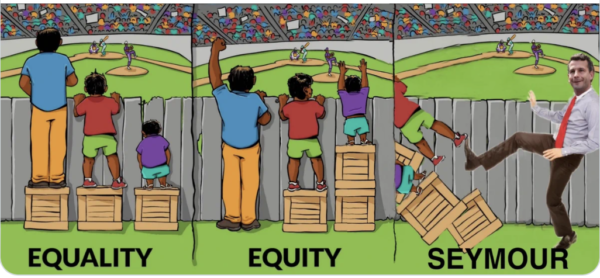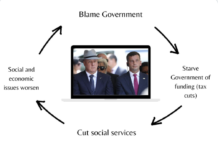The Treaty: We don’t believe Treaty of Waitangi is a partnership between races – David Seymour
Over the past decade, no party has shown more courage in standing up for the freedoms of New Zealanders than Act.
There’s been the freedom of parents to choose a school that suits their children, charter schools. Our party has stood for the legal rights of licensed firearm owners, freedom of speech, the freedom of vulnerable people suffering at the end of their life to choose assisted dying, and the freedom of people to go about their business in the face of heavy-handed Covid measures.
Now in Government, we continue to stand up for New Zealanders’ rights. We are reintroducing choice in education, beating back the thickets of red tape and regulation so deadly to innovation and development, and ensuring Oranga Tamariki has the rights of each vulnerable child as its unconditional focus, among other initiatives.
In these and other examples, Act stands for the mana of the individual, the right to live life as you choose so long as you are not harming others. Put another way, Act has championed tino rangatiratanga, or self-determination.
What a load of codswallop!
If this is the best ACT have as to explain as to why they are pushing a race war baiting Treaty Principles Referendum, they are in for a world of hurt!
David’s argument that ACT stand for tino rangatiratanga is so misplaced I wonder if David has ever met any Māori.
Firstly – everything he is saying here is open for challenge.
If we funded public schools better we wouldn’t need Charter Schools!
His Party is influenced by gun nuts who want to bring back the sub machine gun choice of sociopaths as if owning sub machine guns by the populace is a good thing to do.
He does stand for free speech up until he wants to take offence at something and then it is easily triggered woke snowflake time like it is with Peeni right now.
He is righteous regarding the euthanasia policy, I won’t take that away from him, but his position on Covid seemed to be more focused on the interests of death cult capitalists than public health measures.
As for repealing the measures that force Oranga Tamariki to hand Māori children directly to Iwi Community Groups, his desire to play to the redneck vote over this highlights how much of a bad faith actor ACT really are.
At a time when the Mining Industry and Trans National Corporations want to buy up NZ land and the privatisation thugs are looking to rob us blind, we need more safeguards to our sovereignty than David Seymour’s limp and brittle definition of tino rangatiratanga.
All he is doing here is reducing the concept of tino rangatiratanga into the shallow individualism of the Western tradition.
Individualism über alles is a petty trade in for what Māori already have.
David wants to downgrade Māori from citizens to consumers.
Māori communalism is as close to Kiwi socialism as we are going to get! David’s attempt to reduce tino rangatiratanga into individualism misses the Māori values where sharing and communalism is central.
All David is doing is forcing a Western Philosophical definition of the self onto Māori and then telling them to accept it!
How does replacing Māori communalism for a shallow western definition of the individual, justify dumping the Treaty Principles?
If anything, wouldn’t further atomisation of Māori culture help fray the unity and allow ACT to legislate it away?
Māori tino rangatiratanga is the sovereignty of the people, not the self interest of the individual, if this is all ACT is rolling up to Waitangi with as a justification for their race baiting referendum, good luck.
This is surprisingly weak sauce from Seymour, he’s usually much better than this.

Increasingly having independent opinion in a mainstream media environment which mostly echo one another has become more important than ever, so if you value having an independent voice – please donate here.
If you can’t contribute but want to help, please always feel free to share our blogs on social media.






“We are reintroducing choice in education and health”
In other words …privatization, where the very wealthy go ahead and the middle and low income New Zealanders get left behind.
Privatization!
If you want Charter schools, fine, fund it yourself, do not use our tax paying dollars to do so.
Acts policies promote separatism.
Charter schools = cherry picking students. No wonder they are alleged to do so well, except of course in the US in particular they don’t.
https://mronline.org/2023/07/03/charter-schools-fail-and-close-every-week/#:~:text=Within%20the%20first%20three%20years,are%20disruptive%20to%20everyone%20concerned.
https://districtadministration.com/charter-schools-fail-at-astounding-rate-report-says/
But that’s the market I guess.
Charter Schools are the first step in laying a foundation of ignorance for a future fascist theocracy.
Look to the USA for confirmation.
Some confused argument about tino rangatiratanga there. Sovereignty eh. It was sovereignty that Māori ceded to the British Crown, in return for that status of British subjects. There is no more merit in claims that tino rangatiratanga = sovereignty than there is in the nonsense coming out of the self-styled sovereign citizens movement.
How seemore can het away with demented race theories with zero evidence (I suspect he just makes this up) with so little pushback from the expected group of rigtwingers that guzzle and gag on him only second to Winston is kind of sad, but not unexpected.
Seymour is Maori. He is qualified to talk on all things Maori with out exception.
Well let him but in Te Reo.
If Maori never gave up Sovereignty then equal democracy is dead.
Who’s laws, customs, ownership takes priority if there is a dispute between Maori and everyone else?. Who gets the kids in a matrimonial break up? Who owns/controls all natural resources?
What is the legal /political status of non Maori in NZ
Seems like a debate we have to have now!
On the contrary, if sovereignty remains with the whakaminenga then genuine democracy becomes a real possibility.
Law has never been straight forward. Even within the British realm there has been common law, statute law and canon law. Norman law was superimposed over Saxon law but did not replace it. Maori tikanga does not conflict with the fundamentals of the English common law. We haven’t seen much conflict between the two in the past few decades, and are unlikely to have any such problems in the future.
Under rangatiratanga the Maori system of governance (actually the same system of governance under which all peoples lived before the rise of monolithic nation states and empires) obviously will prevail, to the benefit of all our peoples.
Who will own resources, the whenua, moana and means of production? That will be a matter for democratic decision, and it will be made with wisdom and prudence befitting rangatiratanga. The Australian banks and retail chains, the Chinese forestry and dairy companies, and the American owners of agricultural land, urban business enterprises and infrastructure companies should not worry unduly. While under rangatiratanga they will no longer be able to dictate to government or gorge themselves on the wealth of the land, they will be subject to a fair political and economic environment.
The legal status of non-Maori will be no different to that of Maori. That means that “non-Maori” will lose some of their privileges (for example the exclusive right to appoint the Head of State) but on the whole they will have more rights, freedoms and agency than they enjoy under the Westminster system.
The political status of non-Maori will be entirely up to themselves. I expect that the vast majority will choose to constructively engage in te rangatiratanga.
Rangatiratanga refers to a system of government in which the rights of the individual are an important consideration – as they are in any governmental system. However, rangatiratanga cannot be reduced to the rights of the individual, and therefore indistinguishable from any other system of government.
No reira, he aha te rangatiratanga? To answer that question you need to look not so much at the Palace of Westminster but at governance practices of the nation’s marae, from the eighteenth century to the present day, and you also need to consult Te Paipera Tapu in which the concept of rangatiratanga is discussed extensively.
Certain key differences then emerge between Westminster system and rangatiratanga. Some of these are:
Rangatiratanga is an open system of government. There are no secret ballots.
There is an organic connection between rangatira and their followers. Rangatira are always responsible for and to their people. (As it happens this is not unlike the situation that prevails in a Westminster Parliament where members can unseat or dissociate from their leaders at any time, and leaders must continuously retain “the confidence of the house”, but which does not apply to the relationship between the Westminster citizen and the Westminster politician).
People living under rangatiratanga are free to choose their own hapu or marae (constituency) and establish new marae based on true community of interest. Unlike Westminster constituencies, hapu are not of fixed or uniform size.
If ACT was really “championing rangatiratanga” it would be embarking on a revolution to overturn 184 years of colonization and pseudo-democracy under the Westminster system. That revolution will come, but I doubt that David Seymour and ACT will be at the forefront of the change.